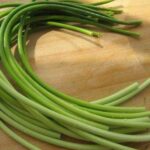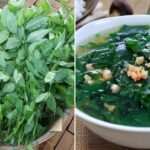When it comes to nutritional value, a 100-gram serving of custard apples contains 34 times more vitamin C than apples. The fiber content in custard apples is 1.6 times higher than in bananas, and this ample fiber content helps maintain smooth intestinal peristalsis. The fruit is also rich in potassium ions, which are beneficial for cardiovascular health.
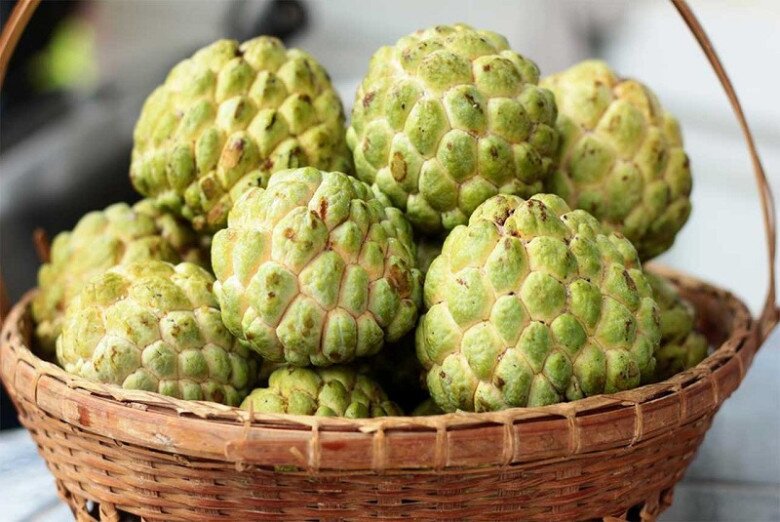
Custard apples are considered a highly nutritious fruit, second only to almonds in terms of vitamin and mineral content. Photo illustration.
Custard apples also contain significant amounts of natural sugars, with a medium-sized fruit containing the equivalent of a bowl of rice in sugar content. Additionally, they are a good source of iron, which can help treat anemia. Due to their high nutritional value, scientists recommend consuming custard apples regularly, except for those who are overweight, obese, or diabetic, who should consult a doctor before including them in their diet.
Scientist and polyclinic physician Bui Dac Sang (Vietnam Academy of Science and Technology, Hanoi Oriental Medicine Association) stated that while custard apples offer various health benefits, caution must be exercised when consuming them as food or medicine, as improper use can adversely affect one’s health.
Here are three precautions to take when eating custard apples, as advised by scientist Bui Dac Sang:
First, avoid overripe custard apples with cracks: According to Mr. Sang, custard apples are now cultivated intensively and are susceptible to pest attacks, especially when the fruit is mature and the eyes are open. To ensure yield and facilitate transportation, farmers or traders may use pesticides and chemical preservatives. In such cases, these chemicals can easily penetrate the flesh of the custard apple, posing health risks when consumed.
Recommendation: Choose ripe custard apples that are not too soft to the touch. When buying custard apples, carefully examine the outer surface, avoiding those with rotten, cracked, or flipped eyes, as they are more likely to be infested with maggots and other insects in addition to potential chemical contamination.
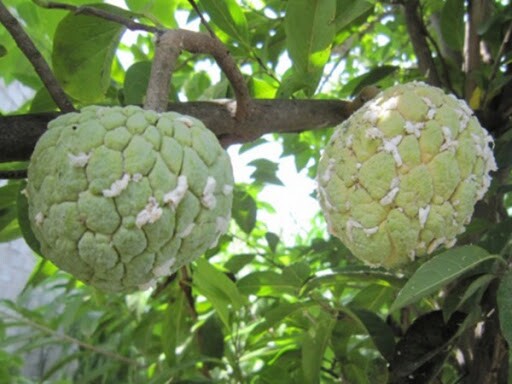
Custard apples are prone to pest and parasite infestations, increasing the likelihood of chemical treatment. Photo illustration.
Second, beware of choking hazards: Custard apples have seeds that are embedded deep within the segments and soft flesh, posing a choking hazard for the elderly and young children. In fact, there have been several cases of children experiencing life-threatening emergencies or even death due to choking on custard apple seeds.
Recommendation: Remove the seeds before serving custard apples to children or individuals with impaired chewing or swallowing abilities. In case of seed aspiration, remain calm and remove the foreign object safely, preferably by calling for emergency medical assistance or taking the child to a hospital as soon as possible.
Third, do not use custard apple seeds as medicine without professional guidance: According to herbalist Bui Dac Sang, custard apple seeds are considered a medicinal herb in traditional medicine, but they are highly toxic, especially when chewed or used as a remedy. Consuming crushed custard apple seeds can lead to gastrointestinal poisoning.
In traditional medicine, custard apple seeds are used as an insecticide for treating lice and scabies. However, Mr. Sang cautioned that using custard apple seeds as a hair wash, as some people do, can cause blindness if not properly prepared. Improper use of custard apple seeds can lead to corneal ulcers and burns.
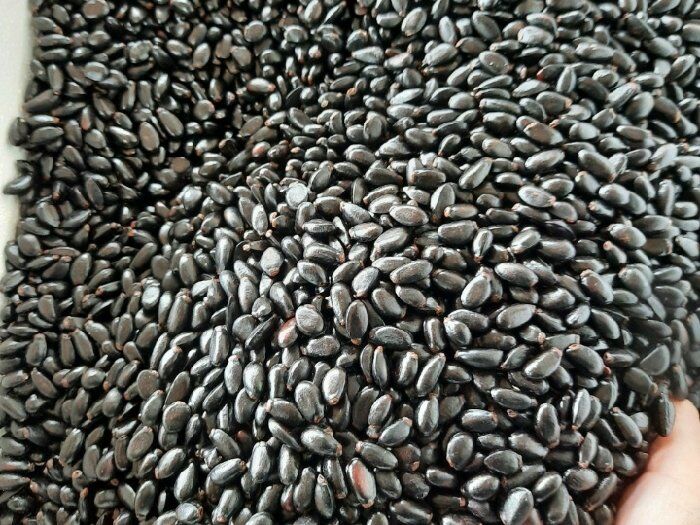
Improper use of custard apple seeds can lead to eye injuries and even blindness. Photo illustration.
In a recent case on August 23, ophthalmologists at the Pediatric Hospital in Haiphong City treated a child who presented with eye irritation, swollen eyelids, and corneal edema. The cause was attributed to crushed custard apple seeds used for hair washing, with the toxic seed residue coming into contact with the child’s eyes and causing these injuries.
If an individual has open wounds, the toxins in custard apple seeds can lead to severe inflammation, necrosis, and infection of the affected area.
Recommendation: Mr. Sang advised against using custard apple seeds for medicinal purposes without consulting a qualified healthcare professional.
4 Essential Vitamins for Healthy, Strong Hair Growth from Within
Introducing the power of Vitamin E for hair health and beyond. Vitamin E is not just a nutrient to be ingested; it’s a versatile powerhouse that can be applied topically to transform your tresses. Whether ingested as a nutritious treat or applied as a hair care essential, Vitamin E is the ultimate guardian and enhancer of your crowning glory.
The Ultimate Guide to Natural Collagen Boosting: 3 Simple Ways to Younger-Looking Skin
Collagen is a fibrous protein that plays a crucial role in the body’s connective tissues, especially the skin and hair. It is often referred to as the secret to youthful-looking skin and vibrant hair. With its ability to provide structure and elasticity, collagen is the key to maintaining a vibrant and healthy appearance.

























